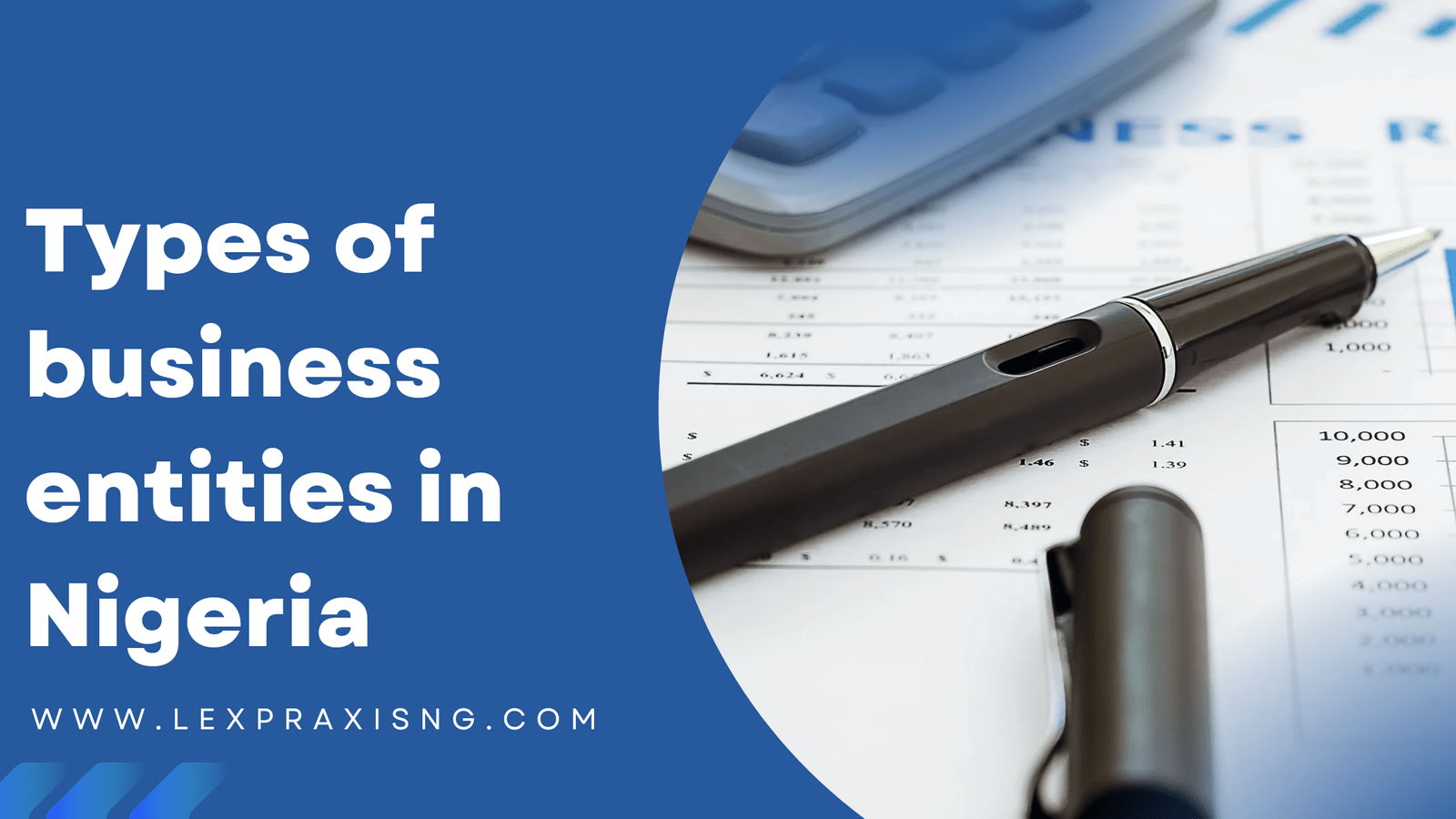When we refer to business organizations, we mean entities established for the purpose of carrying out commercial activities with the aim of making a profit.
If you are considering setting up a business in Nigeria either as a foreigner or a citizen, it is important that you are aware of the types of business organizations/entities we have in Nigeria.
This information is crucial as there have recently been new types of entities added to what we had before as a result of the establishment of the Companies and Allied Matters Act 2020.
TYPES OF BUSINESS ORGANISATIONS/ENTITIES IN NIGERIA
In no particular order, below are a list of types of business entities we currently have in Nigeria;
Sole Proprietorship; Popularly referred to as a “one-man business”, its common attribute is that all risks and benefits associated with this type of business entity are borne by one person alone, who happens to be the proprietor. It is however easy to set up and manage. In Nigeria, sole proprietorships are registered as business names.
Partnership; As the name infers, this type of business organization is owned by two or more persons. There are two types of partnership under this category; (i). General partnership (ii) Limited Liability Partnership.
Under General partnerships, all risks and liabilities are borne by the partners equally. In Limited partnerships, on the other hand, risks and liabilities are borne by the general partner while the limited partners do not bear liabilities and are not responsible for the day-to-day operations of a company. A limited partnership also consists of one general partner and other limited partners.
Private Company Limited by shares; This type of company is referred to as private due to the fact that it has a limited number of members, i.e. a minimum of two (2) members and not more than fifty (50) members. It is also prohibited from inviting members of the public to acquire its shares. This is the most popular and commonly used type of company by individuals.
Public Company; This type of company is referred to as “public” because there are no restrictions on the number of members it can have. A public company can offer its shares to members of the public.
Company Limited by Guarantee; A company limited by guarantee is a type of company established with the aim of promoting commerce, art, science, religion, sports, culture, education, research, charity, or other similar objects. Income made from this type of company is directly or indirectly not distributed to its members but is used to promote its activities.
A company limited by guarantee does not issue shares.
Unlimited Company; Under this type of company, all risks and liability are borne by members of the company and there are no limits to the extent of their liability. There are very few unlimited companies in Nigeria.
Limited Liability Partnership (LLP): This type of business entity has elements of both partnership and a limited liability company. It is run by two or more partners who bear limited liability towards the company. In other words, in the event of an existing liability for instance where the entity is sued, the liability of the partnership is limited to the amount contributed by each partner when the entity was formed.
A limited liability partnership however enjoys the benefit of a separate legal entity from its members. As a result, in the event members of an LLP are no more within the company as a result of death or dismissal, etc., the company does not wind up or stop existing.
WHAT ARE THE REQUIREMENTS FOR REGISTERING A BUSINESS IN NIGERIA?
In Nigeria, the Corporate Affairs Commission is the agency responsible for registering business organizations or entities in Nigeria.
Based on the nature of the types of business entities/organizations mentioned above, the requirements may slightly differ. We have however provided the requirements for registering a company, limited partnership, and limited liability partnership in the links below
http://lexpraxisng.com/requirement-for-company-registration-in-nigeria/
CONCLUSION
Depending on the nature of the business you wish to undertake as well as your business goals, not every type of business organization is suitable for all kinds of business entities, as there are numerous factors to be considered in the long run.
We, therefore, recommend you seek expert legal guidance in this regard.
If you need legal guidance with respect to making the right choice of business organization for your business, please reach out to us through the WhatsApp link on the right part of this page or HERE. We look forward to hearing from you.
